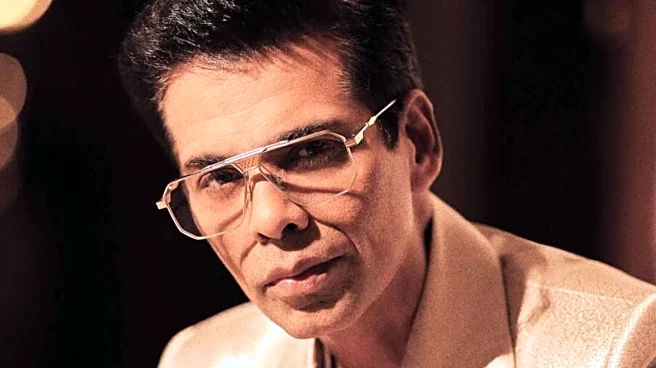In an era where artificial intelligence can clone a person’s face, voice, and even emotions, the question of who owns “you” has never been more urgent. From deepfake videos featuring Bollywood stars to
unauthorized voiceovers mimicking famous personalities, the boundaries between authenticity and artificiality are blurring fast.
India is now witnessing a legal and ethical awakening around personality rights, a concept that sits at the crossroads of privacy, intellectual property, and technology law.
Understanding Personality Rights, More Than Just Privacy or IP
“Personality rights protect an individual’s control over the commercial use of their name, image, voice, or likeness,” explains Simrean Bajwa, Associate (Research & Partnerships), Dean’s Office, BITS Law School.
“While the right to privacy is about protecting dignity and autonomy, and intellectual property rights deal with economic interests in creative works, personality rights operate at the confluence of both, safeguarding the sanctity of personal identity and its commercial worth.”
In simpler terms, if privacy ensures that no one intrudes on your life, and IP laws ensure no one steals your creation, personality rights ensure no one profits off who you are, without your consent.
A Legal Turning Point for India
Recent high-profile petitions by celebrities such as Abhishek Bachchan, Aishwarya Rai, Karan Johar, and Nagarjuna have brought the debate to the forefront. These stars approached the Delhi High Court seeking protection against unauthorized use of their names, voices, and likenesses particularly in the digital and AI domain.
“The ongoing celebrity petitions mark a critical juncture in India’s recognition of personality rights vis-à-vis AI and deepfake technologies,” says Bajwa. “The Delhi High Court’s interim reliefs, restricting non-consensual digital replication, suggest that Indian courts are beginning to extend the principles of privacy and IP into the virtual sphere.”
She adds that this shift represents “a welcome step in adapting legal reasoning to contemporary technological realities,” moving beyond traditional endorsement misuse to tackle the complex questions of digital consent and authenticity.
The Marketing Fallout: When Fake Endorsements Hurt Real Brands
But the impact of AI manipulation isn’t just legal, it’s deeply commercial. According to Prof. Rohit Vishal Kumar, Associate Professor (Marketing) at IMI Bhubaneswar, unauthorized use of a celebrity’s likeness “isn’t just an invasion of privacy; it’s an attack on the very concept of trust.”
“A celebrity spends their entire career crafting a specific persona that resonates with their fans. When a fake video or voice clone uses that persona even for a few seconds, the public begins to question their integrity,” he explains. “Even without involvement, the damage is done. Authenticity, once lost, is nearly impossible to rebuild.”
This erosion of trust affects not just the celebrity but also the brands they represent. “A star’s commercial value lies in scarcity in how carefully they choose their associations. When their face or voice floods the internet through fake content, they become less special. Consumers get confused: did the star really endorse that rival product? This confusion destroys endorsement value and undermines legitimate brand relationships,” Kumar notes.
Fragmented Legal Protection, Growing Digital Risks
As Bajwa points out, India’s legal framework for personality rights remains piecemeal and outdated.
“There is no dedicated statute safeguarding one’s image, likeness, or digital persona,” she says. “Currently, protection is drawn from multiple laws, tort law principles like passing off and defamation, sections of the Copyright Act and IT Act, and even trademark law, where celebrity names can be registered as marks. Yet none of these laws directly address deepfakes or synthetic replication.”
This legal gap leaves both individuals and brands exposed to misuse. Deepfakes, AI-generated endorsements, and voice clones spread faster than takedown notices can be filed eroding reputations in real time.
Reputation, Revenue, and the New Risks of AI
“The growth of AI and deepfakes has created a trust crisis,” warns Kumar.
“For celebrities, the reputational danger is immediate, fake videos or AI-generated interviews can completely distort their personal brand. For companies, the financial risks are equally severe. A deepfake ad showing a celebrity promoting a rival product or controversial service can instantly damage consumer trust and destroy ROI on legitimate campaigns.”
He points to the 2023 incidents involving deepfake videos of actors like Rashmika Mandanna and Katrina Kaif, which went viral before being debunked. “Even though those clips weren’t advertisements, they caused massive confusion and anxiety for their real brand partners. Imagine if a fake video showed Virat Kohli endorsing junk food or gambling, the backlash would hit not only him but also Puma or MRF, who genuinely sponsor him.”
The Way Forward: Legal and Contractual Clarity
Both experts agree that India urgently needs to codify personality rights into law.
“With AI capable of creating near-perfect human replicas, the current legal vacuum leaves people vulnerable to exploitation,” says Bajwa. “A comprehensive framework should define consent, fair use, and recognize personality as a legal right with both moral and economic value.”
On the business side, Kumar believes brands must update their contracts to explicitly cover AI and likeness protection. “Traditional endorsement contracts were written for a pre-AI world,” he notes. “Now, clauses must prohibit the unauthorized digital replication of a celebrity’s face or voice, specify penalties for deepfake misuse, and outline joint response protocols for rapid takedowns. Brands that act proactively on this will earn consumer trust.”
Redefining Identity in the Digital Age
Ultimately, the fight over personality rights is about more than legal control or commercial damage, it’s about the right to remain real in a world of replicas.
As Simrean Bajwa aptly concludes, “To quit being passive in this fight, individuals and institutions must recognize that personality itself has become a valuable asset, one that deserves both respect and protection.”
And as Prof. Rohit Vishal Kumar adds, “In the age of AI, trust is the new currency. Protecting authenticity isn’t just a legal necessity, it’s a survival strategy for every brand and every individual with a voice that matters.”


/images/ppid_59c68470-image-177077759049498278.webp)

/images/ppid_59c68470-image-177077754454222790.webp)
/images/ppid_59c68470-image-177077753316323586.webp)
/images/ppid_a911dc6a-image-177077683848562681.webp)

/images/ppid_a911dc6a-image-177077603394625504.webp)
/images/ppid_59c68470-image-177077512106794299.webp)
/images/ppid_59c68470-image-177077504615982639.webp)
/images/ppid_59c68470-image-177077515851590090.webp)
/images/ppid_59c68470-image-177077508321758455.webp)
/images/ppid_a911dc6a-image-177077322976413782.webp)